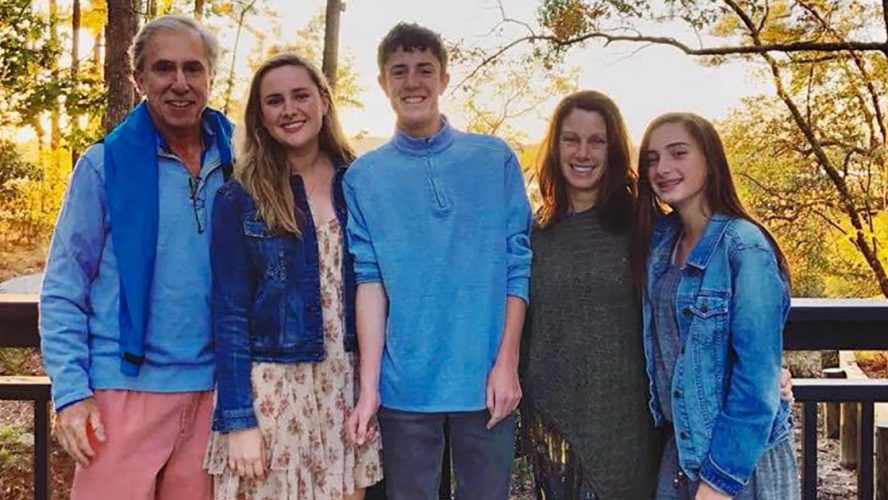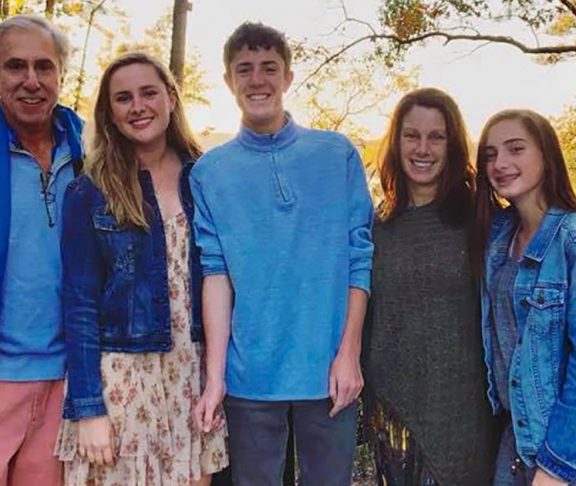In April 2016, Kevin Hanlon, an entrepreneur from Syracuse, New York, was diagnosed with an EGFR exon 20 insertion-mutated lung cancer. There are two types of exon 20 insertions, the other is a HER2 insertion. Both are rare gene mutations diagnosed in two percent of non-small cell lung cancer patients. Exon 20 insertions have also been found in 24 other cancers so far. Many of the patients diagnosed with these mutations are, like Hanlon, never-smokers in excellent shape.
Hanlon came to International Cancer Advocacy Network (ICAN) for help navigating his complex case. Patient advocates help in a variety of ways: Suggesting questions to ask a physician; recommending that comprehensive biomarker testing gets ordered; translating test results in understandable language; making referrals to top doctors for second opinions; encouraging patients to discuss challenging or unusual side effects with their medical team; and numerous other services designed to help patients ensure that no stone is unturned in the battle for life.
To marshal all possible resources against this relatively unknown disease, Hanlon and his brother, Robert T. Hanlon, PhD, a senior lecturer at MIT, co-founded the Exon 20 Group as an ICAN project. Their goal was simple. To turn this lethal disease into a manageable and survivable condition.
Just four years later, the Exon 20 Group is a global coalition and advocacy organization representing 1,200 stakeholders, including patients, care partners and families, medical oncologists, molecular pathologists, scientists, and molecular profiling labs, as well as a growing number of pharmaceutical and biotech companies developing exon 20 drugs.
The Exon 20 Group provides 21 different services for patients in 54 countries, including direct patient navigation at each pivot point of the patient journey; numerous social media sites including closed groups to protect privacy; referrals to molecular profiling services; clinical trials matching services; assistance with requests for compassionate use of drugs; and everything else that a full-spectrum patient advocacy organization provides.
Tremendous progress is being made by researchers and drug companies. We’ve gone from no FDA-approved drugs for exon 20, to an outstanding drug approved in May, and at least one more promising drug that is very likely to be approved in late autumn.
We believe even more can be done, so the Exon 20 Group is creating a new working group to improve the drug development process. The Exon 20 International Research Consortium (Ex20-IRC) will have two goals. The first is to determine what factors impede or delay drug development, and then to expedite clinical trials that combine promising drugs in the pipeline with other currently-approved drugs so that the cancer can be attacked more effectively.
The Ex20-IRC brings together exon 20 researchers and scientists from related disciplines for regular sessions to discuss new results, share ideas, and collaborate on the challenges posed by exon 20. We believe this team of cancer biologists, research oncologists, chemists, physicists,
computer scientists, and others will inspire creative solutions and also be a model for combatting other diseases. All results will be shared throughout the broader cancer and disease community.
As often happens, the founder of an organization did not live to see all the progress he inspired. When Hanlon passed in 2019, he left behind a strong and energized base. This new and exciting multidisciplinary effort owes much to his passionate and focused efforts against exon 20 insertions and his continuing inspiration for all of us. When this challenging disease is defeated, Kevin will deserve much of the credit.

